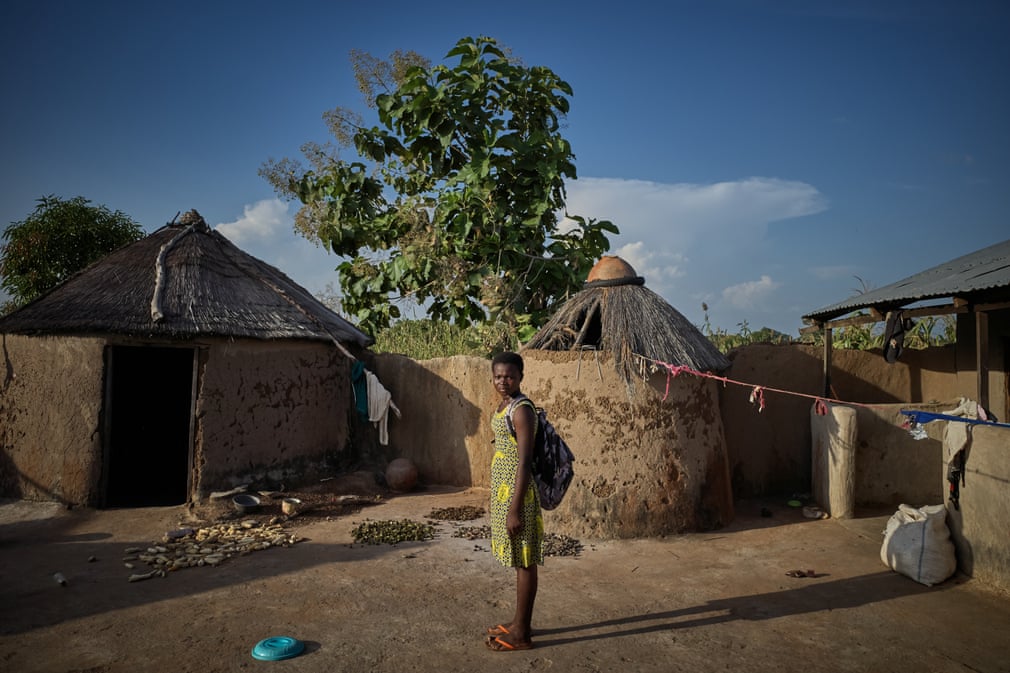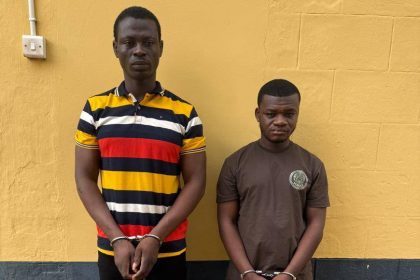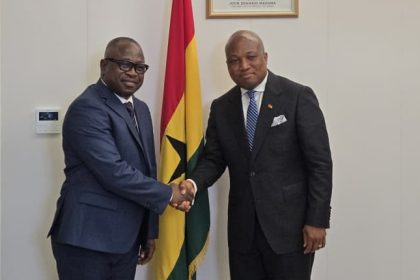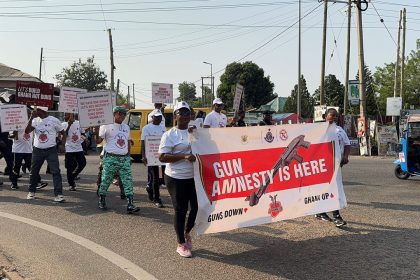New solar-powered borehole pumps mean fresh water, successful crops and enhanced nutrition for farmers in Ghana, resulting in extra family income and a better quality of life.

A portrait of Moses Seidu Musa’s family, who live in Kpatia. The household relies on a communal six-acre unirrigated farm for their staple foods, such as maize, millet and sorghum. Seidu Musa was trained in agricultural machinery, operated a tractor on his brother’s farm about 65km away and now combines working on his smallholder farm and teaching.
‘We [come from] a generation of farmers and hunters,’ says Seidu Musa. ‘We still hunt, but there is no forest because of climate change. So we are mostly farmers; once in a while, we go and hunt.’

Abupoak, one of Seidu Musa’s children, poses on her bicycle before she goes to fetch water with her yellow gallon.
Instead of expending energy at a hand-pumped well, more villagers in northern Ghana are able to simply turn on a tap.
An electric pump, powered by photovoltaic panels, draws potable water from deep below ground and stores it in two 500-litre holding tanks.

The market in Garu, in northern Ghana. Thanks to the solar-powered borehole installed by Oxfam, many villagers have been able to grow their own vegetables during the dry season, so need to visit the market less frequently.
Others shop at the market more often because they have additional income from selling surplus vegetables.

Ruth Abugri lives alone with her four children. Her husband migrated southwards and hasn’t been back home in years.
She’s looking forward to farming vegetables in the dry season when the village of Yabarago gets its own solar-powered water pump.

Cecilia farms millet, maize, rice, and soya beans during the rainy season and farms vegetables with other women in Kpatua during the dry season on an allotment in the garden irrigated by a solar-powered borehole.
She is also a leader of the women in her community.
 Myma – Joshua and Felicia’s oldest daughter – is in the second year of senior high school and dreams of becoming a judge in the future.
Myma – Joshua and Felicia’s oldest daughter – is in the second year of senior high school and dreams of becoming a judge in the future.

Felicia Ayawin, a seamstress, goes to the market in Garu to shop. She and her husband Joshua are subsistence farmers who grow maize, millet and sorghum.
Joshua maintains the solar-powered borehole that serves the communities of Kpatua and Tambalug in Garu, in northern Ghana.

Akisneem Bachela, an elderly widow who relies solely on farming to feed her household in the small village of Tambalug.
She finds her nest a little empty as the farming season comes to an end, as only one of her sons will stay with her throughout the long, dry season.

Abass with his siblings (l-r) Charles, Mathilda and Abupoak. Abass is the second son of Seidu Musa and headmaster of the Kpikpira junior secondary school.
The school serves three small communities and has 160 students. Abass studied integrated science at university. His wife Rebecca also works as a teacher.

Lucy Awaafo and her husband Thomas Atilata are both farmers and have a nine-year-old son, Anthony. They are excited that a new solar-powered water pump is coming to the village of Yabarago.






